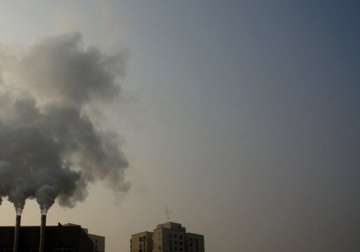New Delhi: Air pollution from ambient fine particulate matter (PM 2.5) could be responsible for 10,000 to 30,000 deaths in Delhi annually, upto 80 deaths per day, a study on PM2.5 particles indicated.
The study, published in the Environmental Science and Technology journal, said that most of the deaths were due to heart attacks and strokes, and many of them were not of respiratory diseases.
The study, titled Addressing Global Mortality from Ambient PM 2.5, concluded that 45% of these premature deaths in Delhi could be avoided if the city met the national ambient air quality standard for PM2.5. If the city's air quality is get to the safe standard set by World Health Organization, as much as 85% these deaths could be avoided, the study said.
China is another country with worrying air pollution. The study stated, “Major improvements in air quality would be required to substantially reduce mortality from PM2.5 in more polluted regions, such as China and India.”
“Forecasted demographic and epidemiological transitions in India and China imply that to keep PM2.5-attributable mortality rates (deaths per 100 000 people per year) constant, average PM2.5 levels would need to decline by ∼20–30% over the next 15 years merely to offset increases in PM2.5-attributable mortality from aging populations,” the study further stated.
The annual mean PM2.5 level in Delhi was about 150 micrograms per cubic metre, about four times the national standard and 15 times the WHO guideline, as per the study.
The study is authored by Joshua S Apte from the University of Texas, Julian D Marshall from the University of Minnesota, Aaron J Cohen from Health Effects Institute and Michael Brauer from University of British Columbia.
An earlier study called the Global Burden of Disease (GBD) had estimated that high levels of PM2.5 particles, which can get lodged in the lungs and enter the bloodstream, were responsible for 3.2 million deaths globally.
The current study uses a high-resolution global model to estimate how many deaths can be prevented, and in which parts of the world, using data from the GBD as well as following the methods of the GBD study.
The study found that about 1.4 million premature deaths can be avoided in China and India alone if air quality met the WHO guideline.
Latest India News
